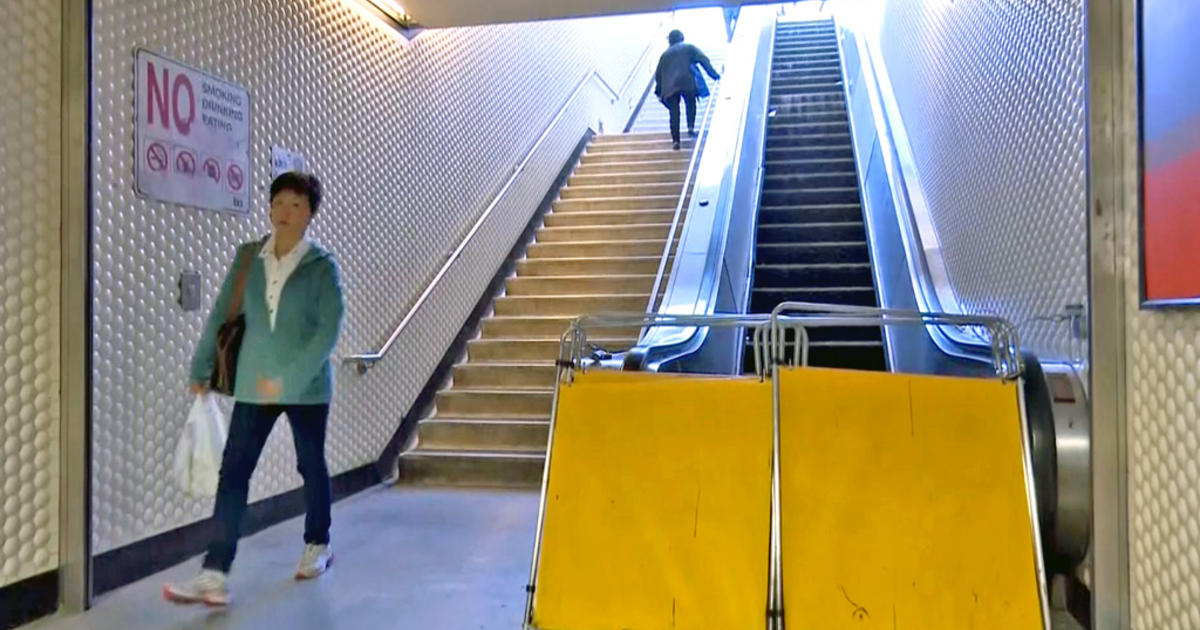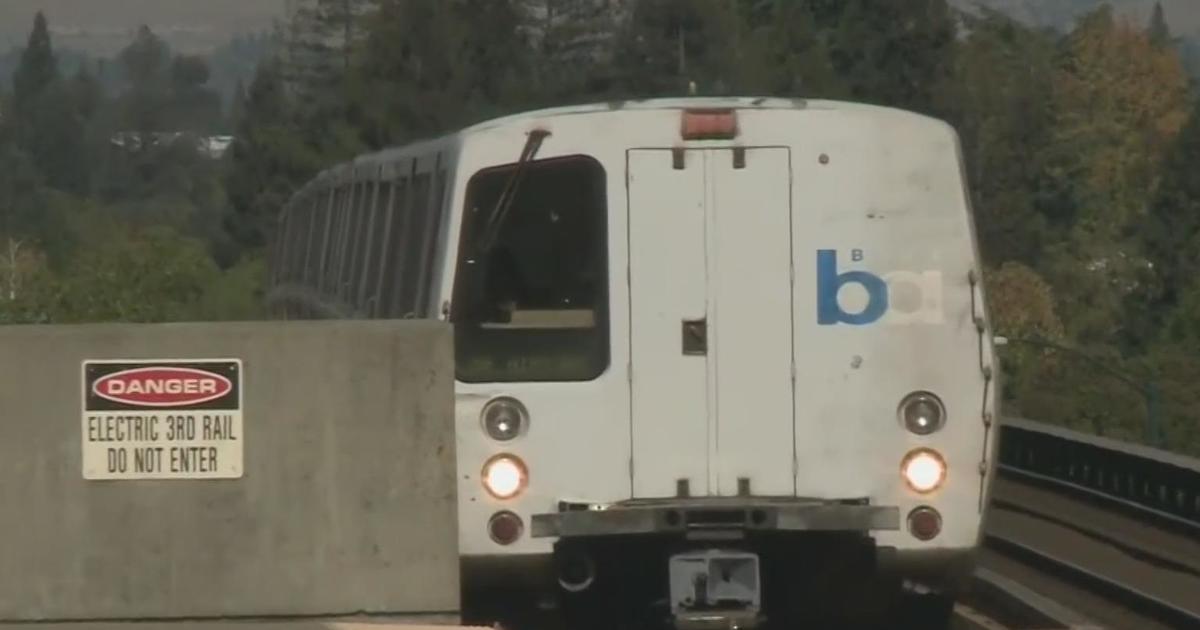As BART Strike Lingers, KPIX 5 Poll Finds Riders Want Cooling-Off Period Ordered
SAN FRANCISCO (KPIX 5) -- As negotiators for Bay Area Rapid Transit and its unions were back at the bargaining table Wednesday night hoping to end a strike that had snarled the region's commute for several days and seemed likely to extend into the 4th of July, a newly-released KPIX 5 poll found almost twice as many people though BART management had made a better case than have the unions.
RELATED COVERAGE: Latest BART News | BART Strike Survival Guide | KCBS Traffic | Listen LIVE To KCBS
In addition, the poll found a majority of Bay Area residents wanted California Gov. Jerry Brown to step in and order a 60-day cooling off period immediately to get the trains back running again.
The poll of 519 Bay Area adults conducted for KPIX by the firm SurveyUSA on Wednesday, day three of the strike, had a margin of error of plus or minus 4.4%.
RELATED CONTENT: Download Complete KPIX 5 Poll Results (.pdf)
Fifty-one percent of those surveyed wanted Brown to order the cooling-off period versus 44% who did not. The governor has so far declined to do so, instead dispatching the state's top two mediators to assist in jump-starting labor talks.
Polls Show Public Support for BART Management
The poll also found 40% thought BART management had made a better case for its position, compared with only 23% thinking so for the unions; 30% said neither side had a better position, while 6% felt the two sides had equal positions. The key issues in the dispute involve salaries, pensions, health care and safety.
Commuter Hilary Hartman, 26, said she had a hard time sympathizing with the unions' demands for more money.
"They make almost twice as much as I do," Hartman said while waiting to take a bus from San Francisco to her job in Berkeley. "I work for a nonprofit. If I don't do my job, I get fired. I'm kind of like, please come do your job so I can do my job."
Despite such feelings, no backlash is likely against the unions, said Steven Pitts, a labor policy specialist at the University of California, Berkeley's Center for Labor Research and Education. He noted California is one of the more heavily unionized states in the country with San Francisco serving as a labor stronghold.
"In this case, BART's unions feel that they have some leverage due to the lack of similar transit alternatives in the area, and BART can't run the trains without its workers," Pitts said.
At the bargaining table, Josie Mooney, a chief negotiator for one of the two striking unions, said she was hopeful about the latest round of talks that began Wednesday afternoon in Oakland.
"We made some progress. We've worked very hard," Mooney said of overnight talks that lasted nearly nine hours before ending early Wednesday morning. She declined further comment, saying the mediators had asked the parties not to speak to the media.
BART management spokesman Rick Rice said the on-going meetings were a good sign, adding, "it's a lot better than not talking."
But by late Wednesday night, BART announced it had received "no indication" that employees would return to work by Thursday morning, leaving a service suspension to continue for a fourth day through the Fourth of July holiday.
BART is the nation's fifth-largest rail system and serves more than 400,000 commuters each weekday. The strike began early Monday after talks broke off and the existing contracts for BART's nearly 2,400 workers expired. Negotiations resumed Tuesday night as political pressure and public pleas mounted.
"I hope this is the last day," Teresa Hardin, 52, of Oakland, a benefits consultant, said Wednesday before she boarded a San Francisco-bound ferry. "It's becoming harder to be sympathetic to either of the parties right now."
California State University-East Bay labor economist Jed DeVaro said the court of public opinion could play a big role in determining how soon the two sides reach an agreement. He indicated the unions may hold out as long as they think the public will allow it.
Growing outrage, DeVaro speculated, "would tend to put a lot of pressure on the unions to concede sooner rather than later." He added that he thought public sentiment would sour if the strike continued beyond this week, because "each day is extremely costly for people."
On Wednesday's day three of no BART operations, heavy morning rush-hour traffic lightened considerably by afternoon as the Fourth of July holiday approached.
"Today has been a much better trip," observed Metropolitan Transportation Commission spokesman John Goodwin, who said demand was lighter particularly on the Bay Bridge. Also Wednesday on the Golden Gate Bridge, he said, fewer motorists crossed the toll plaza than usual during the first two days of the strike.
Editor's note: If you would like a text message from KCBS when a BART strike settlement is announced, text the word ALERT to 45227.
(Copyright 2013 CBS San Francisco. All rights reserved.)



